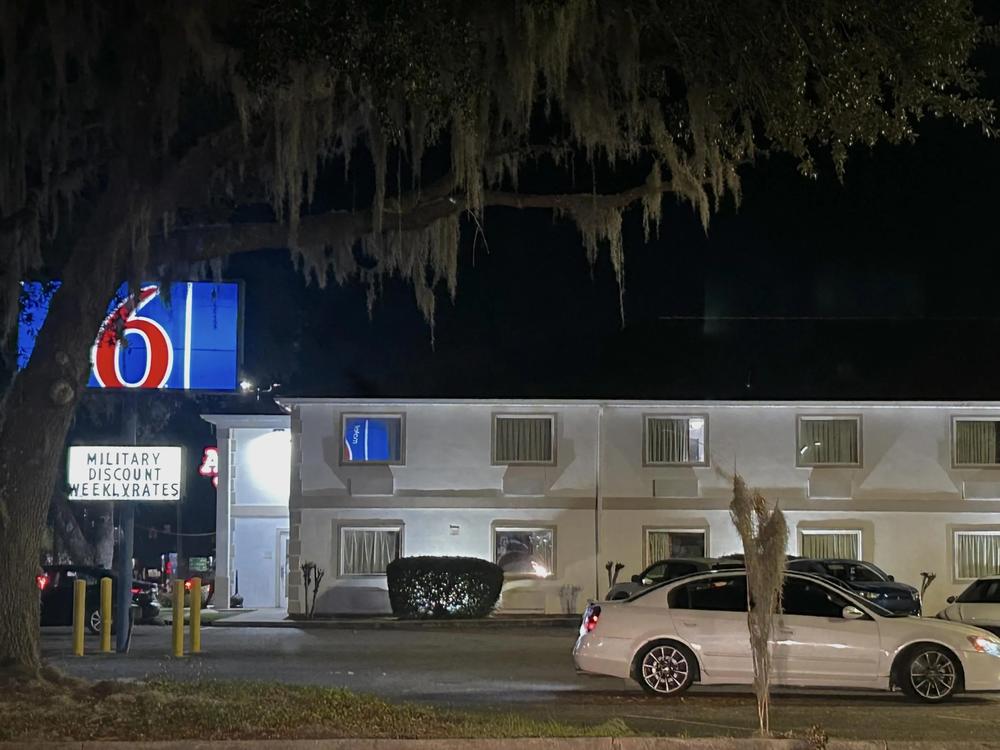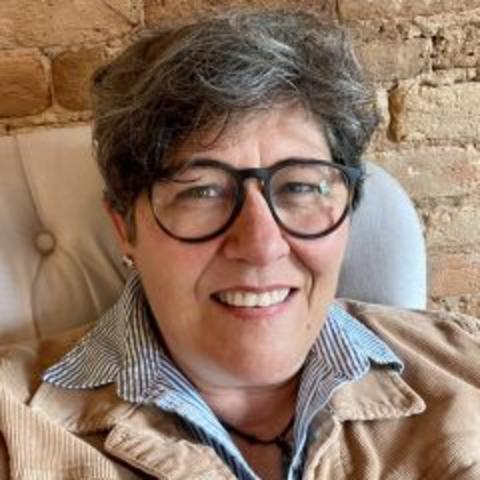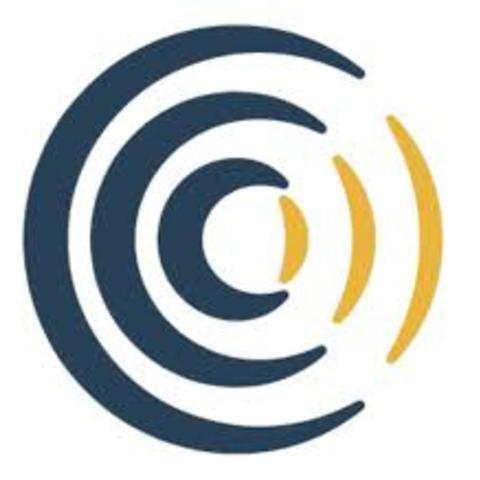
Section Branding
Header Content
2 Hinesville hotel companies named in federal sex trafficking suits
Primary Content

Robin Kemp, The Current
Hotel payments in cash. Young women who never leave the room. Multiple requests daily for towels and linens. Rooms filled with used condoms.
This is the evidence that an Atlanta attorney says should have alerted two hotel owners in Liberty County that their properties were places where sex traffickers allegedly coerced teenagers into prostitution, according to two civil suits filed in the U.S. District Court for the Southern District of Georgia recently against the Baymont by Wyndham Hinesville, 773 Veterans Hwy., and the Motel 6 Hinesville, 213 General Screven Way.
The suits, filed on Oct. 23 and Nov. 13, provide a rare window into a scourge that top Georgia leaders, including first lady Marty Kemp and Attorney General Chris Carr, have pledged to eradicate in Georgia: the horrific abuse of teenagers and vulnerable women forced into prostitution.
The cases were brought under the federal Trafficking Victims Protection Reauthorization Act, which allows victims to hold responsible those who knowingly profit from human trafficking and who should have known that trafficking was taking place. In the Motel 6 case, additional counts involve the Georgia Racketeer Influenced and Corrupt Organizations (RICO) Act, premises liability, and nuisance laws.
The hotel owners deny any knowledge of the allegations and the plaintiffs who have provided evidence against both the alleged traffickers and the hotels where they were held captive are asking the court to protect their identities for fear of retaliation.
The details of the two cases are similar, even if the alleged perpetrators appear to be unrelated.
B.S. vs. Jay Shree Maa Durga, Inc. dba Baymont by Wyndham Hinesville
The Baymont by Wyndham case names the company Jay Shree Maa Durga, Inc,. as defendant, alleging its staff knew a 16-year-old girl was being held against her will by sex traffickers in June 2015.
Rajan Patel of Hinesville is the company’s registered agent, chief financial officer, and secretary. He identified CEO Kantilal K. Patel as his father.
U.S. Southern District of Georgia Magistrate Judge Christopher L. Ray has ordered the company to appear by Nov. 29, and gave it 14 days from the time of appearance to respond to the plaintiff’s request to protect her identity. Rajan Patel told The Current he received notice by mail on Tuesday and that he plans to turn over the suit to his insurance company because “they have lawyers.”
According to the complaint, B.S. had allegedly met two men, “Big Head” and “T,” at a WalMart “while still attending high school.” The complaint alleges she went with them to a house and smoked marijuana “laced with some other drug that rendered B.S. unconscious. When she came to, she was inside of a hotel room and handcuffed to the bed.”
The traffickers, who were armed with guns, allegedly kept the teen drugged up and “continually sold” her “as a sex slave to buyers at the Baymont,” using the hotel’s wi-fi to advertise the girl was available “to perform sex acts, and men would thereafter rape B.S. because of those advertisements.” The money allegedly went to more nights and wi-fi access.
The men also allegedly refused to let housekeeping clean the room, but they or the girl would request clean sheets and towels several times a day, and the hotel staff “always complied.”
All this happened, the complaint alleges, despite several red flags that the child was being trafficked: malnourishment, no possessions, no control of her own money, a steady stream of men coming in and out of the room, multiple room rentals and re-rentals paid for in cash, and “large numbers of used condoms in the rooms.”
In addition, the complaint alleges, the victim and her traffickers were “steered to certain areas of the property and only given room in a particular wing of the property such that the Defendant was aiding in hiding the trafficking from police and others who might report it to the police and was thereby furthering the venture.”
The case also has interstate implications, based on “numerous reasons including the sale and use of condoms, the purchase and use of cleaning supplies from out of state, the use of credit cards to post online advertisements through websites for selling the [teenager] in commercial sex acts, the use of the internet to post sex advertisements, the use of interstate highways to transport Plaintiff to the hotels by her Traffickers (and their associates), and other reasons to be proven at trial.”
‘Why she don’t complain?’
In an interview with The Current, Rajan Patel denied any knowledge of sex trafficking at his hotel (“That’s completely wrong. Nothing is happening at my hotel,” he said) and repeatedly stated that the alleged victim was “just trying to get some money.”
Rajan Patel also repeatedly blamed the woman for not having called the front desk and letting them know she was being trafficked as she alleges in the suit.
Asked whether such suits were common in his business, Rajan Patel said, “I’ve been in business since 2008 and it’s the first time I’m receiving this type of mail.”
He denied knowing “Big Head” or “T.”
“I read the report, and she’s in a room and some things,” Rajan Patel said. “Why she don’t complain the police or at front desk, that woman, if she – because we don’t go to the room sometime, and in the room, we’re not allowed to go in the room, so we don’t know what’s going on inside the room. So this is not right. She’s been there many times, that’s what she said. Why she don’t stay there for long time? If something happen and they do sexual things, she should have called the cops that time.”
The Current asked Rajan Patel whether he knew sex traffickers often beat up, drug, and prevent their victims from using the phone or leaving the room.
“Right, but in that case, she should have known some kind of way she need to do something,” he said, adding that the guest, not the hotel, controls whether the housekeeper can enter the room.
He also said he didn’t think it unusual that J.S.’s room allegedly had asked daily for multiple linen and towel changes, Rajan Patel said, “That’s nothing new to us. People do that all the time.”
Rajan Patel also said his hotel had posted signs about sex trafficking.
“You can talk to the Hinesville P.D,” he said. “My hotel don’t have any drama. We don’t have any sexual things or any drug people. We don’t play that in my hotel.”
The Current has filed a Georgia Open Records Request for police reports dating from the time of the alleged incident.
J.S. vs. Kishanvb Hospitality, Inc. dba Motel 6 Hinesville
In the Motel 6 case, plaintiff J.S. filed suit against Kishanvb Hospitality, LLC, on Oct. 23, also in federal district court. In that case, the judge ordered the company to answer by Thursday, Nov. 14. The only person listed on corporate filings is Viralkumar Patel.
The complaint alleges that “[f]rom approximately August 2020 through April 2021, J.S. – a eighteen- to nineteen-year-old girl – was repeatedly trafficked for sex at the Motel 6 by Shaquan Graham.” The Current has not found any trafficking charge or conviction against Graham, and the plaintiff’s attorney, Matthew B. Stoddard, also acknowledged that “We have no notice of a trafficking conviction” against Graham.
J.S. allegedly met Graham while she was a 17-year-old high school student. A year later, according to the complaint, J.S. ran away from home and told Graham “she would be his girlfriend.” The complaint says Graham allegedly promised to help J.S., then took her to the Motel 6, forced her into prostitution, beat her almost daily, raped her, drugged her, and “continually sold J.S. as a sex slave to buyers at the Motel 6,” where he was “sexually assaulted hundreds of times… by various ‘Johns.’” Graham is alleged to have used the money from J.S.’s forced sexual encounters to rebook the room and to pay for wi-fi access to advertise J.S. to prospective clients.
In its answer filed Nov. 13, filed by the Atlanta law firm Freeman Mathis Gary, Kishanvb Hospitality, LLC, denied any knowledge that J.S. had been trafficked or that its wi-fi had been used to sell her body.
Stoddard, who is representing the plaintiffs in both cases, told The Current that he has filed similar suits around metro Atlanta, but that these cases are his “first attempt at holding hotels responsible” in the Savannah area. Stoddard said he did not know whether the cases were part of any coordinated effort, but noted the “extremely laissez-faire attitude” of hotel owners he’s dealt with in sex trafficking cases.
Law enforcement response
Hinesville Police Chief Tracey Howard said he was aware of only one case of child sex trafficking in Hinesville, in which the FBI called trying to track down a 15-year-old girl. “In that particular situation,” Howard said, “we went and looked for that female at specific locations and throughout the city, but she was not located.”
The given number of such cases in a year, he said, is “zero….They’re very isolated in nature,” and they come in “from another tip. We did have one guy several years ago that was either a former soldier or soldier that was believed to have been involved [with] a juvenile.” Howard said the person in question “was not proven to be a young person. They were of adult age, but we turned that information over, as well.”
To try and prevent children from falling into the hands of sex traffickers, Howard said, “we take immediate response on every listed runaway juvenile, male or female.”
Howard said the Hinesville Police Department does not have a sex crimes unit, “just because of the size of our detective division. We do have detectives that have specialized and additional training in the investigation of sex-related crimes involving children and/or adults.”
The department does take part in an annual training called Traffic Jam, he said, but HPD generally only works such cases with other agencies and those are mostly related to the national Internet Crimes Against Children Task Force.
“Sometimes we will get notification of information, you know, that there’s a perpetrator working in the area that’s either downloading, and if there’s uploading, we would assist, typically, whatever state or federal agency, because the GBI is also heavily involved with ICAC.”
At the state level, in 2019, Carr created the Human Trafficking Prosecution Unit, which focuses on minors who are being trafficked for sex. According to Carr’s office, the HTPU “has secured 50 criminal convictions, led or assisted 325 case investigations, and rescued and assisted nearly 200 victims.” It does so in cooperation with federal criminal prosecutors.
Kara Murray, communications director for the state attorney general’s office, told The Current in an email response, “Within our own cases, we see victims sold between 5-10 times per day, which is why the Unit continues to pursue buyers (those purchasing a child for sex) as well as sellers. In one case involving an underage victim (who was previously reported as missing from Missouri), the Unit has so far convicted 12 different people for their involvement in her trafficking, including nine buyers.”
Carr’s office, while Atlanta-based, is “working to expand our footprint to provide additional assistance across the state,” Murray said, adding that the AG’s office has taken part in training for Georgia educators on “how to recognize the signs of human trafficking and file a report.”
If you or someone you know is being trafficked, call the National Human Trafficking Hotline is 888-373-7888 or text HELP to 233733 (BEFREE). The Children’s Advocacy Centers of Georgia’s hotline is 866-363-4842 (866-END-HTGA).
This story comes to GPB through a reporting partnership with The Current.


